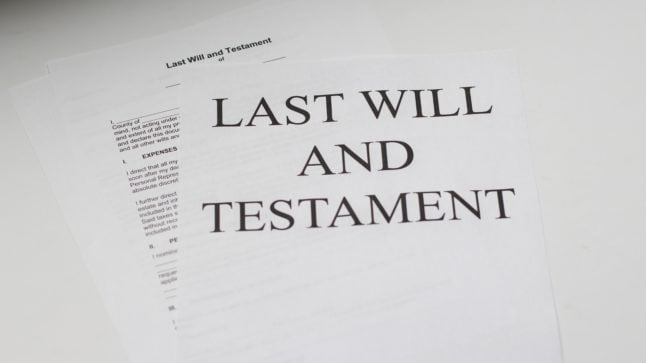Record levels of inflation, spiralling energy prices and fears of shortages… the news has been getting worse and worse for consumers in recent months.
At the start the year, the government announced it would be stepping in with numerous measures to help people pay their bills during these difficult months. But as more details of the measures emerged, there appeared to be one major omission: financial support for pensioners.
To find out whether pensioners will benefit from the relief packages, it’s worth taking a look at each of the measures in turn. In most cases, pensions have sadly been left out of the equation, but there are a few things that may help cushion their rising living costs.
READ ALSO:
- Is Germany planning more energy relief measures?
- How much money will you get from Germany’s energy relief measures?
€9 ticket and fuel tax cut
We’ll start with the good news: the €9 monthly travel ticket and cut in energy tax on fuel are both designed to benefit everyone, including pensioners.
Unfortunately, the fuel tax cut doesn’t appear to have dampened prices at the pump very much. However, pensioners can enjoy cheap public transport throughout June, July and August with the €9 ticket.

This is obviously great news for retirees who live in cities and parts of the country with good transport networks – but less good news for those who use their car to get around.
The government’s third mobility measure – an increase in the commuter allowance to 38 cents per kilometre – is also unlikely to benefit the vast majority of pensioners. This measure allows workers who commute long distances to offset some of these costs in their tax returns.
READ ALSO: Nine of the best day trips from Munich with the €9 ticket
€300 allowance for taxpayers
This flagship energy relief measure – a one-off payment for taxpayers – is another bit of support that pensioners may miss out on.
The one exception would be pensioners who still work a part-time job to prop up their income.
Even if you’re only working a couple of hours a week, you’ll be entitled to a €300 bonus come September. It’s worth mentioning that this is taxable – but if you don’t earn enough to pay tax, the entirety of the €300 is yours to keep.
However, there may be a way that pensioners can get hold of the money even if they don’t have a regular job. As CDU finance expert Antje Tillmann explains: “It is enough, for example, that a pensioner looks after his grandson for one hour once in 2022 and receives €12 minimum wage from his children in return as part of a mini-job or from self-employment.
“Subsequently, he declares this income in the tax return and gets the energy price lump sum paid out in May 2023.”
READ ALSO: Who gets Germany’s €300 allowance – and when?
One-time heating allowance
As part of its first energy relief package, the government announced that recipients of housing benefit would be eligible for a one-time payment to help with their heating costs.
This is set at €270 for a one-person household and €350 for a two-person household, plus €70 for each additional family member.
Pensioners who received housing benefit at any time between October 2021 and March 2022 should be eligible for this allowance, as well as people who currently receiving it.

One-time allowance for benefits recipients
Pensioners who receive Grundsicherung (basic allowance) should be eligible for a one-time lump sum of €200, which will also be paid out to Hartz IV recipients.
Other allowances, such as the €100 Kinderbonus and €100 for people receiving Arbeitslosengeld I, are sadly unlikely to apply to pensioners.
Scrapping of the EEG levy
The Renewable Energy Act (EEG) levy, which adds about 3.7 cents per kilowatt hour onto consumers’ energy bills, is set to be scrapped on July 1st.
This should benefit anyone with an electricity contract, including pensioners.
Tax relief measures
The government is raising the tax-free allowance for 2022 to €10,347 and raising the value of automatically deductible expenses to €1,200 per year.
Neither of these measures will benefit pensioners who don’t pay tax.
READ ALSO: KEY POINTS: What Germany’s budget means for you
To sum up: Which measures can pensioners benefit from?
- €9 ticket (for public transport users)
- Fuel tax cut (for drivers)
- Scrapping of EEG levy
Pensioners claiming welfare could also benefit from:
- €270 allowance for housing benefit recipients, and
- €200 allowance for Grundsicherung recipients
Pensioners do seem to be getting a slightly raw deal in comparison to those in employment. However, there are some general measures they may benefit from, and those who are already getting help from the state should also receive a small income boost.
READ ALSO: EXPLAINED: Germany’s plans to ditch sanctions for the unemployed




 Please whitelist us to continue reading.
Please whitelist us to continue reading.
Member comments